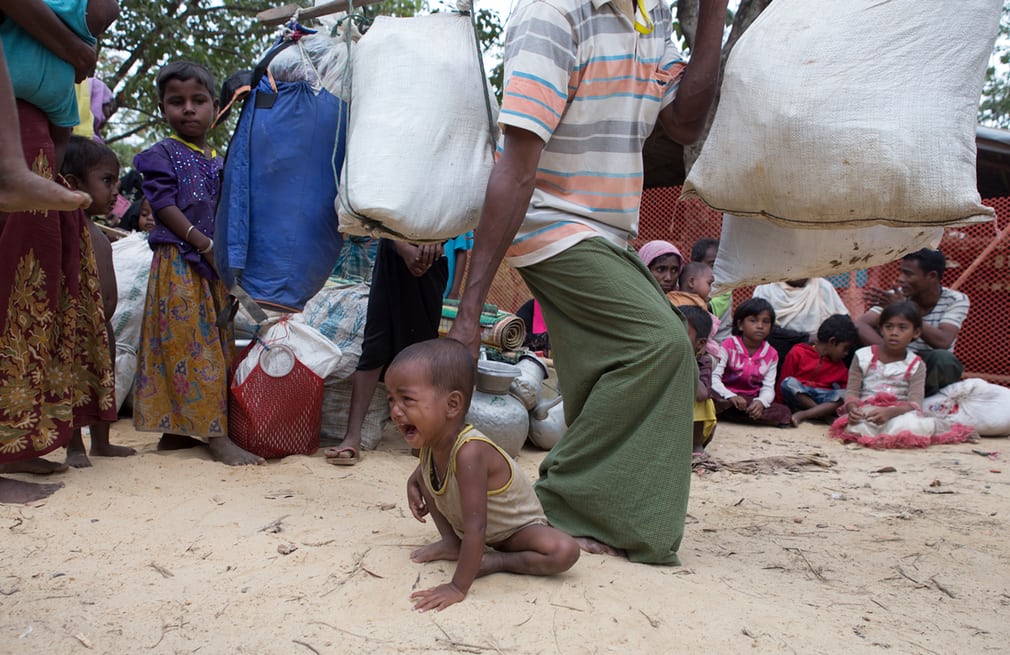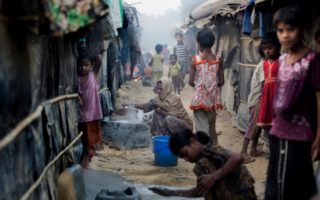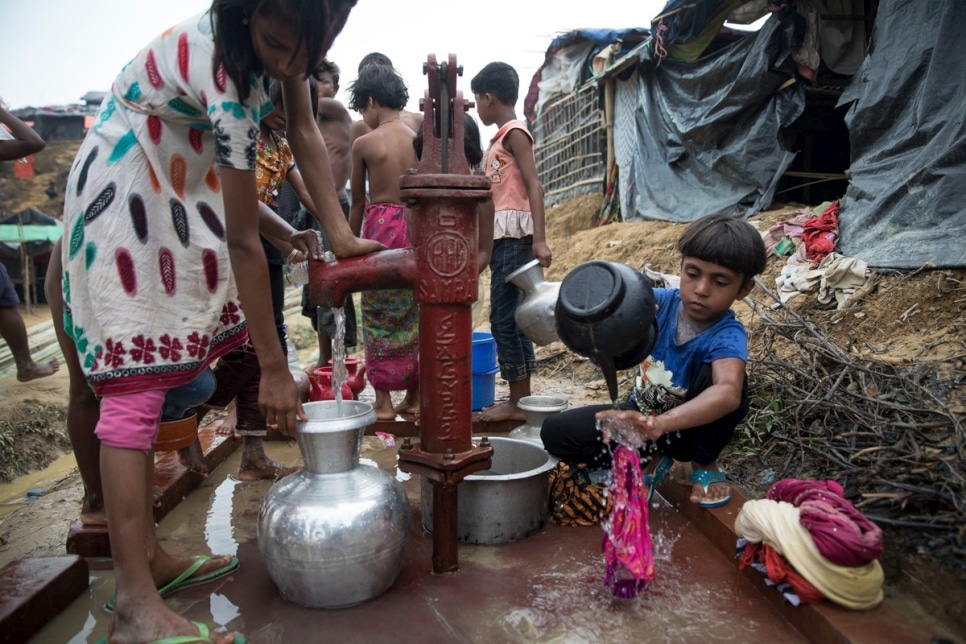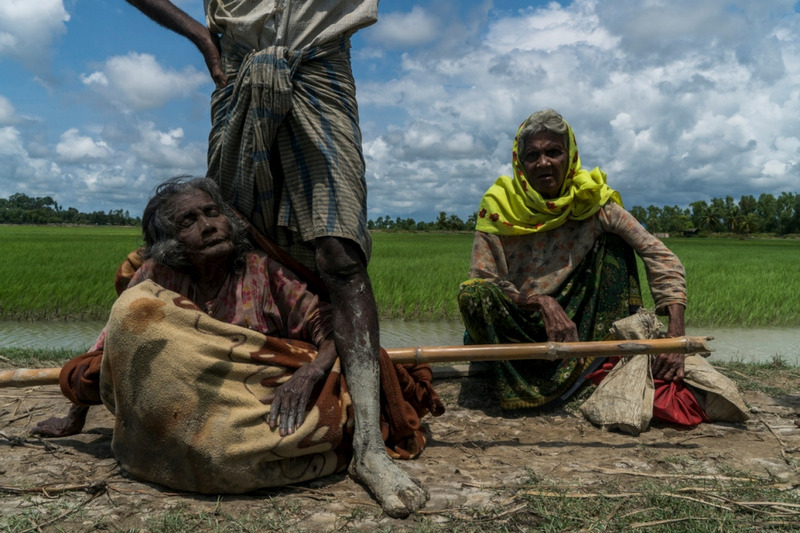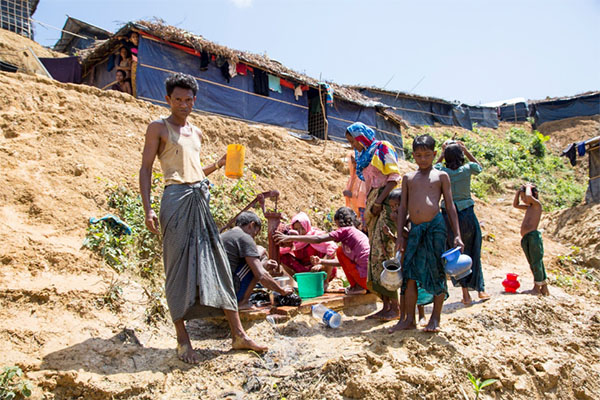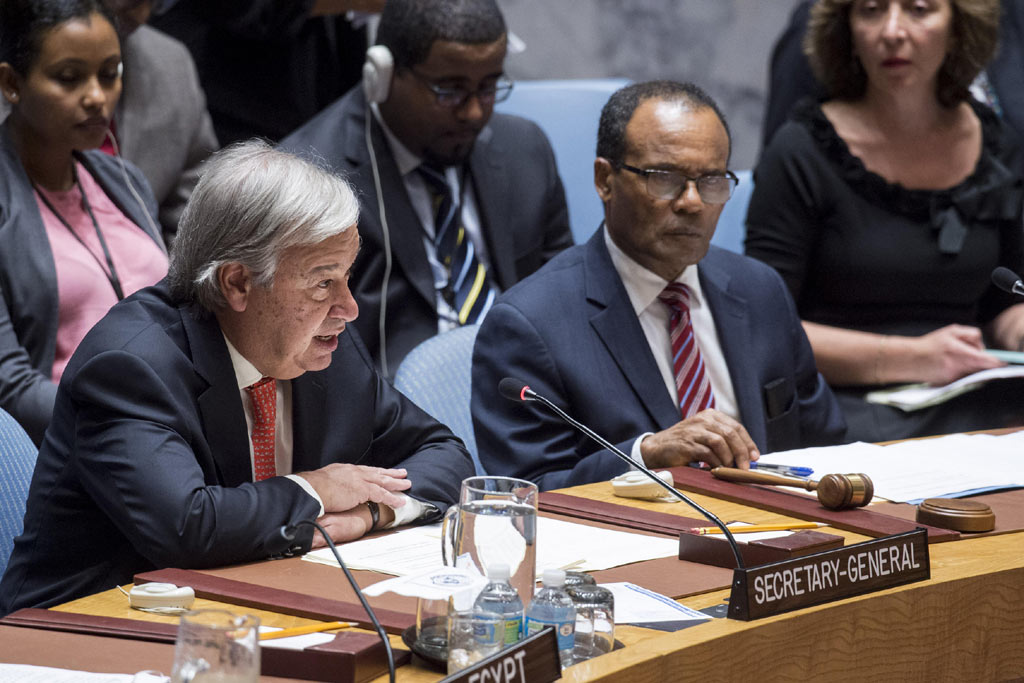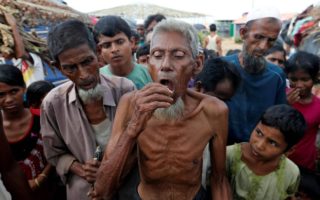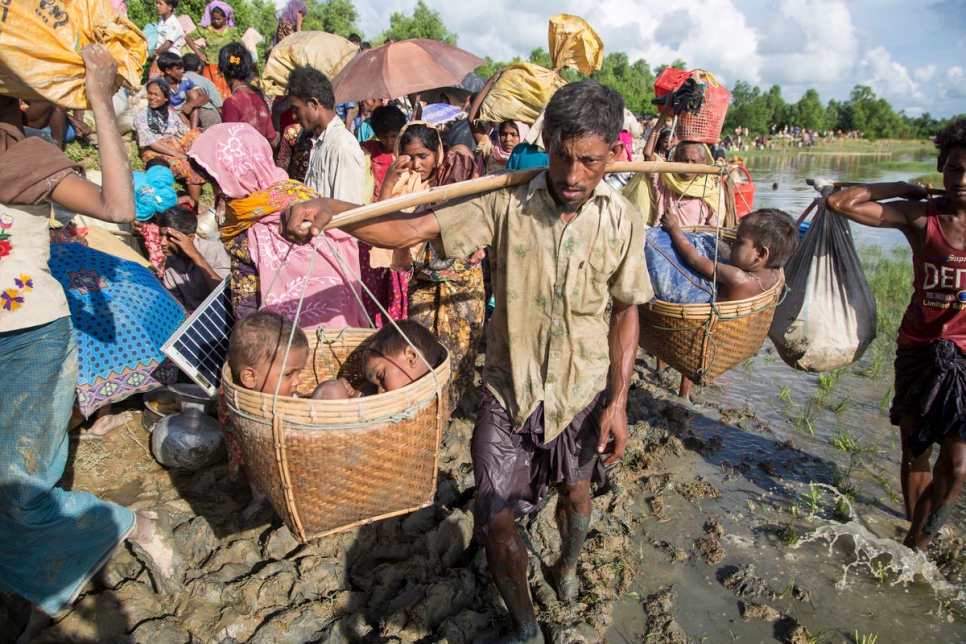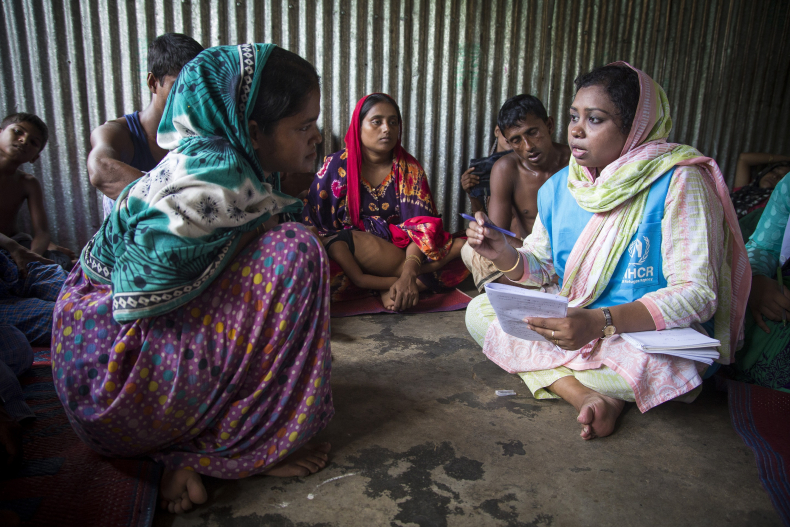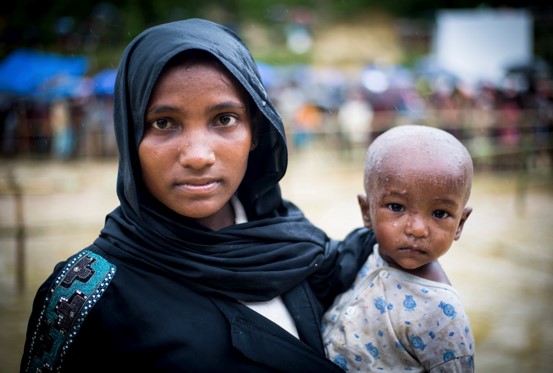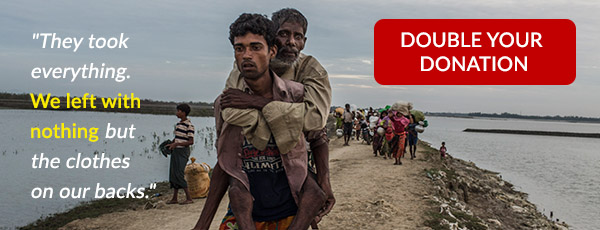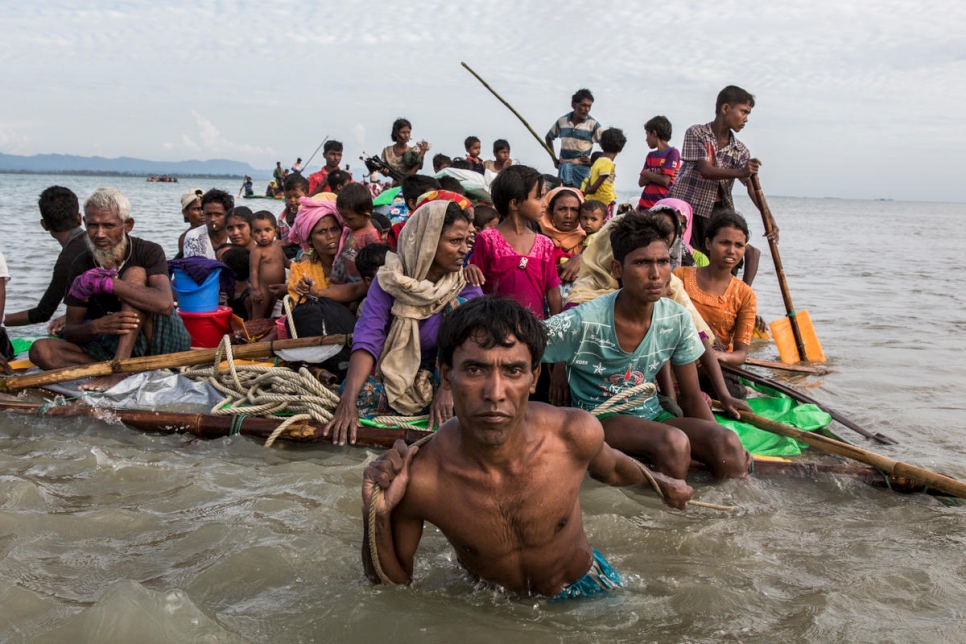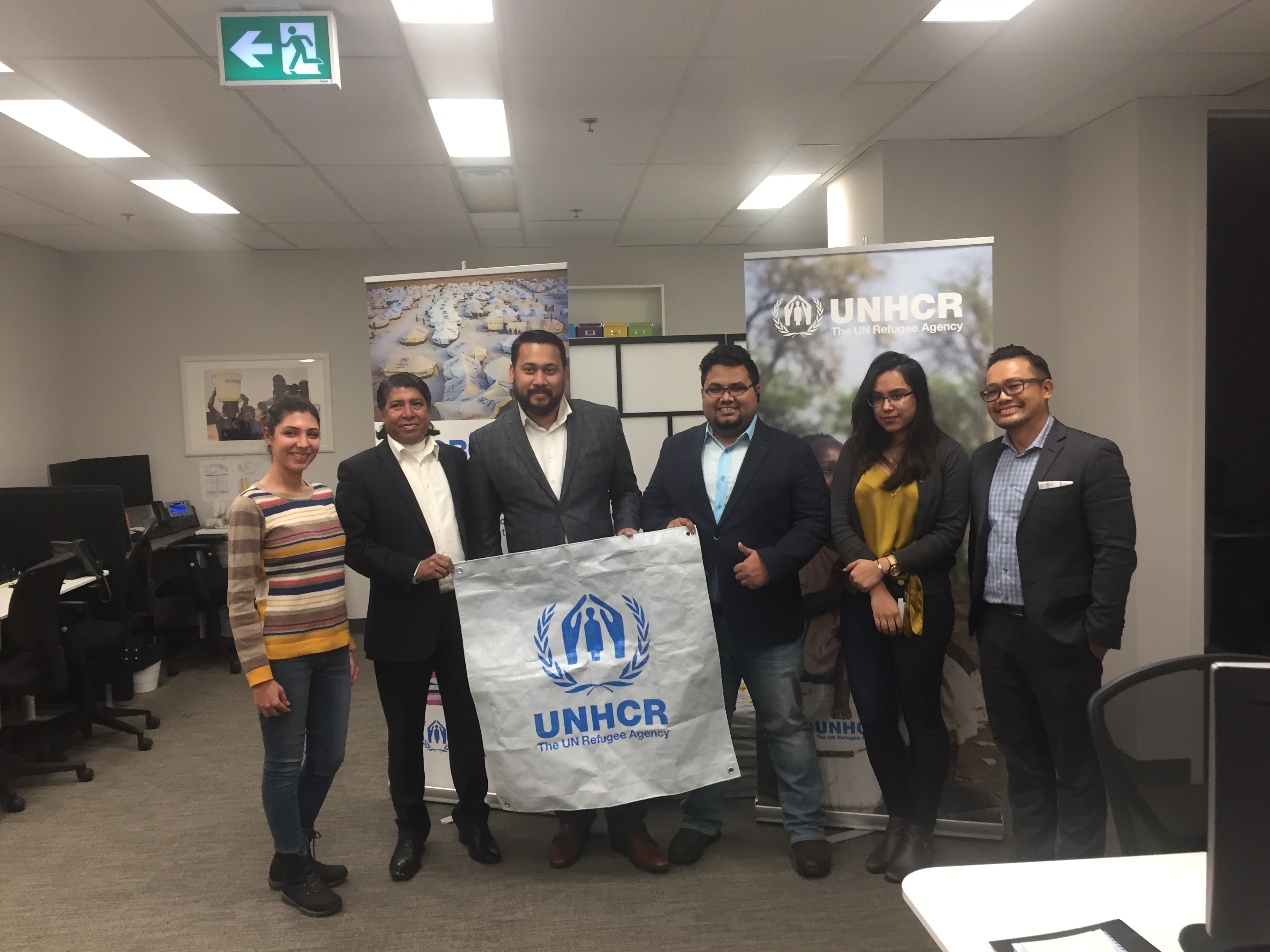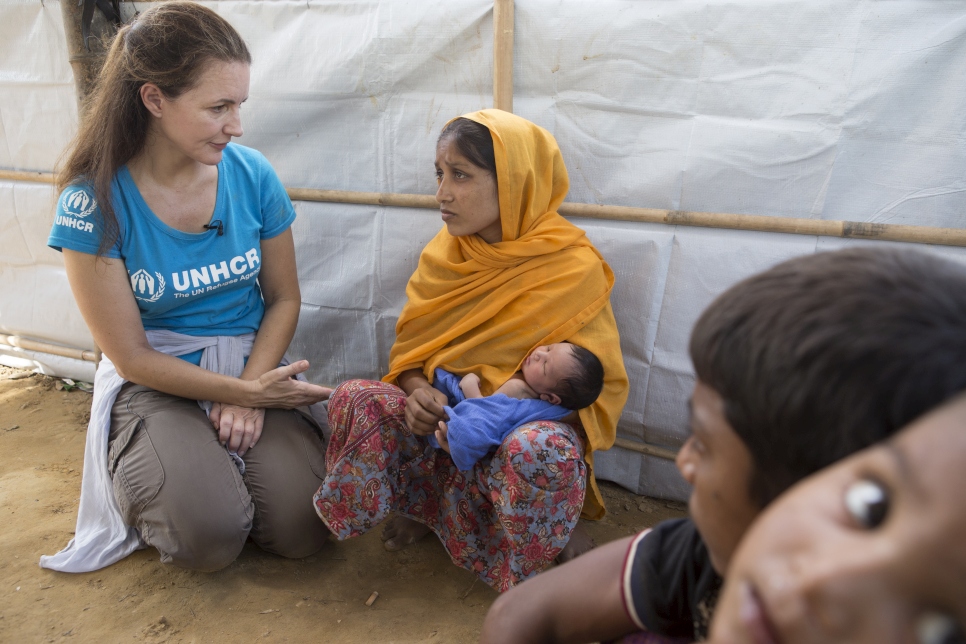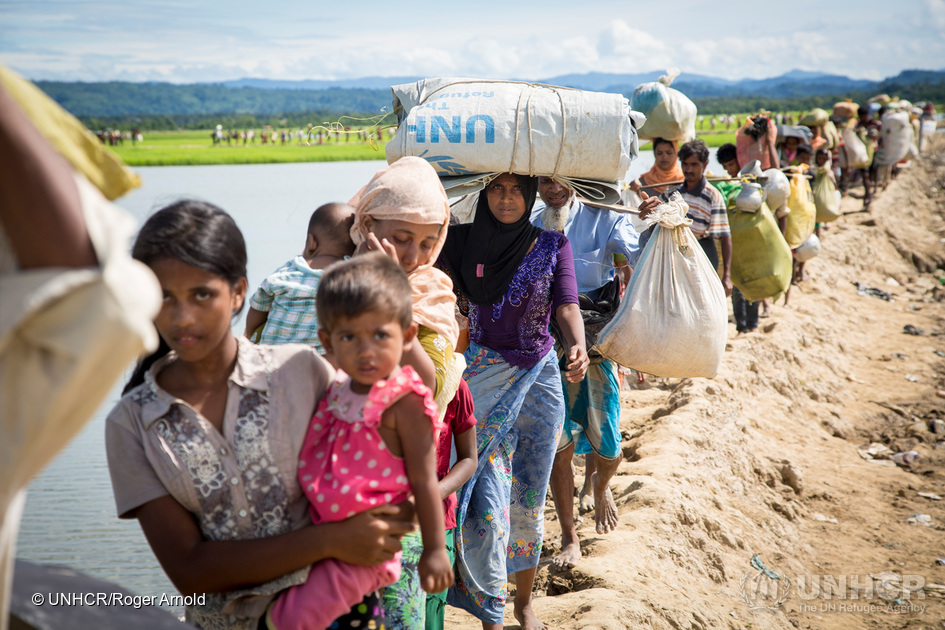
Last Updated: December 1, 2017
Over half a million people have fled to Bangladesh since violence erupted in Myanmar in late August. Here are some key events of this unfolding drama.
You are viewing: The emergency response
-
August 25, 2017
Outbreak of the crisis
Myanmar state media reports that 12 security officers have been killed by Rohingya insurgents. An Army crackdown in Rakhine state triggers an exodus of the stateless Muslim minority. Over the next four days, the number of refugees reaching Bangladesh on foot and by boat soars to several thousand.
-
August 29, 2017
UNHCR braces for new refugee arrivals
UNHCR, the UN Refugee Agency, which has been working in Bangladesh for decades, pledges support and urges Dhaka to open borders as the numbers increase rapidly. UNHCR’s existing aid operation for tens of thousands of refugees in camps in Cox’s Bazar braces itself for a new massive influx.
-
September 5-8, 2017
Refugee camps overwhelmed and overcrowded – UNHCR asks for urgent support
UNHCR calls for “life-saving assistance” as the numbers reaching Bangladesh approach 125,000. Three days later, on September 8, it warns that limited capacity at two existing refugee camps is exhausted as numbers reach 270,000. Bangladeshis and an earlier wave of refugees are at the forefront of the aid response, feeding, clothing and sheltering new arrivals as makeshift shelters mushroom on roadsides and available land.
-
September 12, 2017
As the first UNHCR emergency airlift lands the number of new arrivals tops 370,000. After enduring persecution and extreme poverty in Myanmar, many are already malnourished before setting out on a week-long trek through the jungle under the monsoon rains. The old and sick are among the most vulnerable, some, like 75-year-old Mabia Khatun, are carried to safety by relatives.
-
September 19, 2017
Monsoonal rains spread disease and difficulty for new arrivals
more than 415,000 refugees have trekked to southern Bangladesh, many like mother-of-six Rabeya Khattm struggling with rains and flooding along the way. The same day, UNHCR declares Bangladesh a major emergency to scale up its response, deploy more staff and resources. Amid fears of disease outbreaks in the sprawling informal settlements, it steps up vaccine, clean water and sanitation drives.
On September 24, during a three-day visit to Bangladesh, UN Refugee chief Filippo Grandi calls for aid efforts to be “accelerated and sustained” to avert disaster.
-
September 28, 2017
Refugees die trying to reach safety; UN Secretary General addresses the Security Council
At least 14 refugees, among them nine children, drown when a packed boat flips in the Bay of Bengal, as the number of new arrivals in Bangladesh tops half a million. In New York, UN Secretary General António Guterres tells the Security Council the Rohingya refugee crisis is a “human rights nightmare.”
-
October 9, 2017
10,000 Rohingya refugees cross into Bangladesh in just one day
As the outflow continues, UNHCR rushes relief supplies to the border areas amid reports on October 9 that an estimated 10,000 Rohingya refugees crossed into Bangladesh in just one day. Days later a “family count” gets underway in the informal settlements, to collect data on the size, particular needs and location of the newly arrived. It aims to help flag those with special protection needs, such as single mothers with small infants, people with disabilities, or lone children and elderly refugees.
-
October 11, 2017
Canada urged to provide more aid for Rohingya refugees in Bangladesh
Jean-Nicolas Beuze, the UNHCR Representative in Canada, called on the government to increase its funding for the agency in Bangladesh. “We are definitely calling on Canada and other countries to continue paying attention to the situation and providing us and our partners with the necessary funding to be able to respond to the crisis.”
-
October 17, 2017
More refugees flee to Bangladesh as villages set on fire
Despite threats to leave or be killed, thousands of Rohingya opt to stay put in their homes in Rakhine state. But by mid-October, they flee when their villages are set on fire. Around 15,000 refugees near the Bangladesh-Myanmar border, as they wait for permission to cross to safety.
-
October 18, 2017
Mental health of Rohingya refugees highlighted by the Canadian press
Refugees arriving in Bangladesh have experienced horrific violence and many are suffering from trauma severe stress. UNHCR is working to support men, women and children affectedd by such trauma, as covered in the National Observer.
-
October 24, 2017
International community pledges support
The international donor community announces more than US$344 million to ramp up delivery of critical humanitarian assistance to refugees and host communities in Bangladesh, where the number of women, children and men seeking safety now exceeds 600,000.
-
October 25, 2017
Canadian organizations come to the aid of Rohingya refugees
Canadian organizations come together to support Rohingya refugees with donations. Unifor Social Justice Fund matches up to CA$50,000 worth of donations from the Canadian public. Mohamed Alsadi, director of Unifor Social Justice Fund, says “the forced migration that took place in (Myanmar) is absolutely difficult to look at, to standby and not to do anything.”
In early November Eaglecom Foundation announced a CA$25,000 gift match for Canadians donating to the Rohingya refugee crisis.
-
October 30, 2017
Canadian Government announces Myanmar Crisis Relief Fund, matching donor gifts $1 to $1
The Government of Canada launches the Myanmar Crisis Relief Fund “in order to engage Canadians in responding to this humanitarian crisis and reinforce the response of Canadian civil society to address the immediate needs of vulnerable populations fleeing violence in Myanmar.” For every eligible dollar donated by individuals to registered Canadian charities Between August 25, 2017 and November 28, 2017, the Government of Canada sets aside one dollar per one dollar donated to the Myanmar Crisis Relief Fund. UNHCR Canada is part of this gift matching program.
-
Early November, 2017
Refugees stranded in Myanmar craft rafts to try to reach safety
Thousands of Rohingya are stranded in Myanmar waiting to cross the Naf River to Bangladesh. Unable to pay for the crossing, a flotilla of 30 improvised rafts – made from bamboo poles and jerry cans lashed together with rope – cross the river estuary to Bangladesh on November 17 as refugee numbers top 620,000.
-
November 12, 2017
Canadian communities band together to support Rohingya refugees
Canadians all around the country, including expat Bangladeshis group together in their community to raise money for Rohingya refugees.
-
November 24, 2017
Talks of return to Myanmar prompts note of caution
UNHCR welcomes reports of talks between Bangladesh and Myanmar, but insists any returns “must be voluntary, and take place in safe and dignified conditions that … meet international standards.”
-
November 20, 2017
UNHCR Goodwill Ambassador Kirstin Davis visits Bangladesh, calls for support for Rohingya refugees
“This is currently the fastest growing refugee crisis in the world and seeing the impact of this emergency on children is devastating,” Davis commented. “But there is hope.”
-
1 December 2017
Crisis continues: aid ongoing
In the 100 days to date, UNHCR has provided emergency aid including 93,000 tarpaulins for shelters, 178,000 blankets and 36,000 sets of kitchen utensils to refugees. It has provided access to water and latrines to over 100,000 people, and medical attention and counselling to nearly 60,000. Its family count has so far gathered data on 173,356 families, to better identify their vulnerabilities and meet their immediate needs going forward.
Canadian donors remain vital in our efforts to protect Rohingya refugees.



